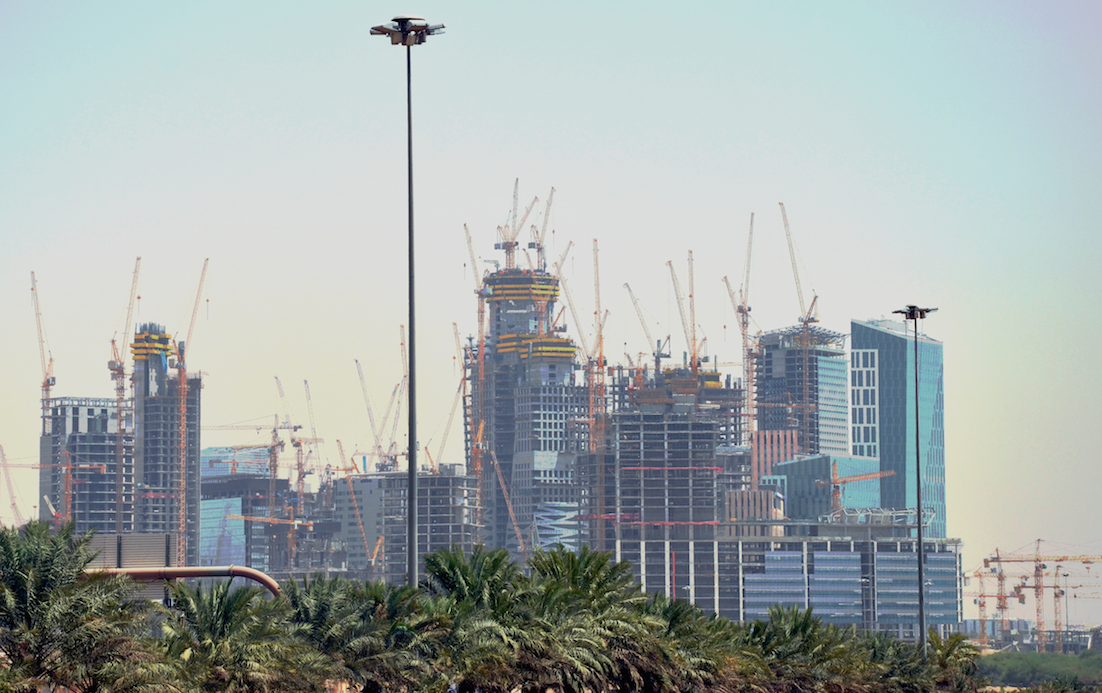Saudi Arabia faces housing challenges caused by rapid population growth and an inflow of expatriate workers to the kingdom.
Some studies show that Saudi Arabia needs around 1.6 million new houses in the next four years just to cover the dramatic increase in demand for new homes by Saudi citizens; At least 275,000 units have to be built each year.
Compared to its fellow Gulf Cooperation Council states (GCC), Saudi Arabia’s housing market is the least developed. Only about 3.5% of all home purchases are financed through a mortgage. This number is 17% in the UAE and, by example, 70% in the UK and USA. Despite the fact that home loans do exist in Saudi Arabia, where banks deduct a fraction from the loan holder salary each month, banks have been very conservative in mortgage lending. The majority of mortgages in Saudi Arabia are provided by the state’s Real Estate Development Fund, which offers interest- free loans to low-income buyers.
In March 2011 King Abdullah and the Saudi government took an aggressive step to address growing demand for housing when it announced a plan to spend $67 Billion to build 500,000 new homes. In the same month, the Shura Council approved a draft mortgage law; something that had been under study and discussion for 30 years.
The law was recently approved by the Saudi Cabinet and is actually a collection of five laws: Mortgage Registration Law, Execution (Enforcement) Law, Financial Leasing Law, Real Estate Finance Law and Control of Finance Companies Law. The details of each of these new regulations are being developed now.
There have been a number of barriers to the passing of this law but the primary obstacle has been the resistance of religious scholars in Saudi Arabia who are concerned it is not compliant with Sharia law and does not correspond to accepted Islamic contracts.
Despite this resistance, the law is an important step towards alleviating the critical shortage of affordable housing in Saudi Arabia. While this has been an issue for some time, regional upheaval has been a motivating factor in accelerating steps to improve living conditions for many Saudi citizens. There is also a huge amount of banking liquidity and interest rates are low. The mortgage law represents a potentially new and secure investment channel with good returns.
However, with the specific details of the mortgage law(s) yet to be confirmed by the Saudi Arabian Monetary Authority (SAMA), it remains unclear who is qualified to offer mortgage financing. Will it be banks or specifically licensed companies? How will the new regulations minimize the risk on the lenders’ side while protecting householders’ rights?
Also, if SAMA’s regulations target low-income family (high risk) housing, this would go a long way toward resolving the bulk of the housing problem in Saudi Arabia. This could also lead to a housing bubble (too much borrowing) and, perhaps, a rash of defaults requiring government support of the financial sector.
Alternatively, if SAMA’s regulations favor middle-income families, it is less likely to fully resolve the larger housing shortage while still requiring increased government interference such as injecting more money into the Real Estate Development Fund.
In either scenario, the government may be required to interfere in order to stabilize the economy.
Ultimately, the introduction of a mortgage law in Saudi Arabia will have many economic implications. Some of them will be felt instantly and others will unfold in long term. The short term rational reaction to a new mortgage law is that there will be an increase in the cost of new houses, land and construction due to increased demand. If the prices go beyond what is expected then the government will likely move to prevent a housing bubble by tightening credit limits for personal loans though SAMA.
In the long term, prices for homes and land can be expected to drop slowly for two reasons. First, the housing demand growth will decline after a few years and move to the steady state. Second, as with any real estate market, there will be some defaults which contribute to the housing supply. These properties tend to be sold at lower prices.
The mortgage law is a smart strategy that should enable more low and middle class families in Saudi Arabia have their own homes. However, SAMA and other Saudi government agencies will need to be fully alert to some key issues such as a housing bubble and default risks.
Hussain Abusaaq earned his Ph.D in Economics, MS in Financial Mathematics and MS in Economics from Florida State University. He is a Saudi citizen who has worked for the Saudi Arabian Monetary Agency and the Arabian American Oil Company (Aramco).
Hussain can be reached for questions and comments at hussainib1@hotmail.com.










